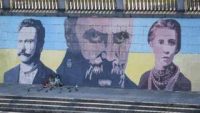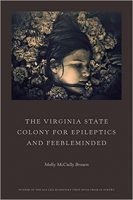March 16, 2017
Edited by David Sanders
Specimen Days
1585—Gerbrant A Bredero, Holland, poet/playwright (Klucht van de Koe), is born.
1757—Bengt Lidner, Swedish poet (Medea, Yttersa Domen), is born.
1839—René F Armand Sully-Prudhomme, France, poet, 1st Nobel winner (1901), is born.
1883—Ethel Anderson, Australian poet (d. 1958), is born.
1892— César Vallejo, Peruvian/French poet (Los Heraldos Negros), is born.
1945—Pierre Drieu la Rochelle, French writer/poet, commits suicide at 52.
1945—Börries von Münchhausen, German poet (b. 1874)

César Vallejo is dead. Everyone hit him,
though he’s not doing them the slightest harm.
They let him have it hard with rods
and hard with ropes. These are his witnesses:
Thursdays, and the bones of his upper arms,
and loneliness, and falling rain, and roads …
—from “Black Stone On a White Stone” by César Vallejo (1892–1938)
[translated by Geoffrey Brock ]
“César Vallejo is dead. Everyone hit him, / though he’s not doing them the slightest harm.” – César Vallejo
World Poetry
Free Metro Rides for Kiev Poetry Buffs

Metro users in Ukraine's capital city are being allowed to ride free of charge at some stations if they can recite a poem by Taras Shevchenko, the country's national poet. Metro attendants will be waiting near ticket barriers to hear people's poetry offerings, and will then allow them through without a ticket, the Kiev Metro Facebook page says. Ordinarily a single journey costs four hryvnias ($0.15; 12p). The initiative, dubbed Shevchenko "happy hour", is to mark the 19th-Century poet's birthday on 9 March. The metro giveaway isn't particularly widespread, as it only applies during brief time slots at three stations – including one named after Shevchenko. And despite the "happy hour" name, the travel window is only 40 minutes at two of the stations.
Look On My Works, Ye Mighty … Ozymandias Statue Found in Mud
Archaeologists from Egypt and Germany have found an eight-metre (26ft) statue submerged in groundwater in a Cairo slum that they say probably depicts revered Pharaoh Ramses II, who ruled Egypt more than 3,000 years ago. The discovery – hailed by Egypt’s antiquities ministry on Thursday as one of the most important ever – was made near the ruins of Ramses II’s temple in the ancient city of Heliopolis, located in the eastern part of modern-day Cairo.
Metro users in Ukraine’s capital city are being allowed to ride free of charge if they can recite a poem by national poet Taras Shevchenko.
Recent Reviews
A French Surrealist’s Eclectic Remembrances of His Cohort, Finally in English
by Joseph Nechvatal
Lost Profiles: Memoirs of Cubism, Dada, and Surrealism is a diminutive, stylish book that kicks off by appreciatively documenting a curiously seedy period of transition within the anti-rationalist French avant-garde: from Dada to Surrealism. Published by legendary City Lights in late 2016, this alluring collection of amiable reminiscences was penned by co-founding Surrealist poet Philippe Soupault (1897–1990) and first appeared in French in 1963 as Profils perdus. City Lights has bracketed this English translation with an introduction by Mark Polizzotti, the director of the publications program at the Metropolitan Museum of Art, and an afterword by poet Ron Padgett.
Aeneid VI by Seamus Heaney Review – Through ‘death’s dark door’ with Virgil
The last work Heaney finished before he died in 2013, this stirring translation of the best book in the Latin epic poem takes us into the underworld
by Nicholas Lezard

At school, in an era much closer to the classical age than we are now, I had a bit of a nasty run-in with Book IV of the Aeneid in Latin, and so I picked up this volume with a shudder. But then I saw that it was Book VI, which is set partly in the underworld, and everyone knows that the best bits of anything are always set in hell. A brief outline of the plot: after the flight from Troy with his comrades, Aeneas gets to speak to the shades of the dead, including, poignantly, his own father. Seamus Heaney started proper work on this after his father died; and it is the last work he finished before his own death in 2013. It is, in a way, his farewell to the land of the living.
Seamus Heaney started translating The Aeneid shortly after his father died; and it is the last work he finished before his own death in 2013.
Broadsides
How I Fell in Love with Marianne Moore: Or, Elizabeth Bishop on What Her Eccentric Mentor Taught Her About Writing
by Maria Popova
I fell in love with the poet Marianne Moore (November 15, 1887–February 5, 1972) in three pivotal palpitations. The first was the discovery that she once saved an ancient tree with a poem, which was my entry point into all of her coruscating poetry. The second was Mary McCarthy’s disarming account, in one of her letters to Hannah Arendt, of meeting Moore at an academic conference.
When the Oppens Gave Up Art to Fight Fascism
by Miranda Popkey

Late in 1935, the artist Mary Oppen and her husband, George, a poet, made a decision. The young couple had recently returned to New York after several years abroad. In Europe, they had read the signs. Jews were fleeing Germany; in Italy, Mussolini was an object of worship. Back in the United States, which they had left in 1929, they were startled by the changes wrought by the Depression. At stoplights, “grown men, respectable men—our fathers—stepped forward to ask for a nickel, rag in hand to wipe our windshield,” Mary recalls in her memoir, “Meaning a Life,” which was published in 1978. Though they had always been leftists, Mary and George now wanted to find an organization with which they could ally themselves. They spoke with the son of the founder of the Socialist Labor Party. They listened to Trotskyites. And then, at the Seventh World Congress of the Communist International, the Communist Party proclaimed a Popular Front against Fascism. This, for George and Mary, was a turning point. “We said to each other, ‘Let’s work with the unemployed and leave our interest in the arts for a later time,’ ” Mary writes.
Unspeakable Visions
by Jules Smith
In February 1950, Jack Kerouac made a note of his “wish to evoke that indescribable sad music of the night in America – for reasons that are never deeper than the music”. This aspiration sounded throughout his later writings; at the outset of Mexico City Blues (1959), the only major collection of poems published in his lifetime, he declared himself “a jazz poet blowing a long blues”. He wanted musicality in his 1950s novels, experimental prose poetry and the self-invented free form haikus he called “American Pops”. The elegiac passages concluding On the Road (1957) and “October in the Railroad Earth” have long been celebrated for the flowing rhythmic beauty of their wordplays. But his modern jazz-inspired improvisational poetics took far longer to gain recognition, even though his friends Allen Ginsberg and Michael McClure, and the youthful Bob Dylan, were early advocates for Mexico City Blues, the latter calling it “the first poetry that spoke my own language”.
His Swords and Armor: Remembering Michael Donaghy
by Robert Archambeau
The beginning of "The Classics," a poem by Michael Donaghy, has stayed with me for a long time:
I remember it like it was last night,
Chicago, the back room of Flanagan's
Malignant with accordions and cigarettes,
Joe Cooley bent above his Paolo Soprani,
Its asthmatic bellows pumping as if to revive
The half-corpse strapped about it.
It's five a.m. Everyone's packed up.
His brother Seamus grabs Joe's elbow mid-arpeggio.
"Wake up, man. We have to catch a train."
His eyelids fluttering, opening. The astonishment …
It's quintessential Donaghy, invoking as it does his great theme, memory, and his love of performances of all kinds—especially those involving Irish music in dingy bars. It brings the two things together in that image of a hunched Joe Cooley, still playing his accordion even as he nods off, the music so thoroughly internalized that he needn't be fully awake to play it. The true performer, Donaghy implies, gets lost in the performance—something that can only happen when the music has been so completely absorbed into the musician that it becomes his second nature.
Late in 1935, the artist Mary Oppen and her husband, George, a poet, made a decision to give up art and fight fascism.
Drafts & Fragments
Coen Brother Pleads to Donald Trump: 'Make me Poet Laureate!'
by Duarte Garrido
Ethan Coen has penned an open letter to President Trump, pleading with him to make him "Poet Laureate of the US”. The Fargo director has been a vocal critic of the Trump administration, publishing a series of ironic poems on the Huffington Post, including titles such as Man Of Action and Oh Where Did Your Balls Go, Paul Ryan? Now he has written a letter, criticising American poetry during the Obama administration, arguing it was "very weak, even failed to rhyme”. "My poetry, on the other hand, always rhymes," the filmmaker says. "And that's one reason why, when current Poet Laureate Juan Felipe Herrera is deported, I should be considered to replace him."
A Digital Archive of Modernist Magazines (1890 to 1922): Browse the Literary Magazines Where Modernism Began
The story of literary modernism in the English-speaking world is most often told through a small collection of Great Works of Art. These poems and novels appeared suddenly after the shock and carnage of World War I, as Europeans and Americans faced the psychological aftermath of mechanized modern combat and its senseless capacity for mass destruction. T.S. Eliot’s The Waste Land surveyed the wreckage of European culture and tradition, James Joyce’s Ulysses showed us history as a “nightmare” from which its protagonist is “trying to awake,” Virginia Woolf’s Jacob’s Room showed the modern self as nothing more than a collection of memories and perceptions, emptied of solid existence….
Filmmaker Ethan Coen has penned an open letter to President Trump, pleading with him to make him “Poet Laureate of the US”.
Poetry In the News
Detroit Native Forché Wins One of Literary World's Richest Prizes

Detroit native Carolyn Forché was working at home on her sofa when she learned she’d won one of the world’s richest literary prizes. “I was shocked,” says the poet, who wondered if she’d misheard the news. Forché heard right. She is one of two poets and eight writers who won $165,000 through Yale University’s 2017 Windham-Campbell Prize, announced earlier this month. It’s the first time poetry was included in the program’s five-year history.
Poets Plan Trump Tower Vigil To Protest Potential NEA Cuts
Is the death of the National Endowment for the Arts inevitable and imminent, or can it be saved ― by poets? Creative writing is one of the many artistic endeavors supported by NEA grants, and a group of poets are planning to fight for the continuance of the agency by holding a vigil for the institution outside Trump Tower on March 15.
Carolyn Forché recently won $165,000 through Yale University’s 2017 Windham-Campbell Prize.
New Books
The Virginia State Colony for Epileptics and Feebleminded: Poems by Molly McCully Brown
[Paperback] Persea, 80 pp., $15.95

Haunted by the voices of those committed to the notorious Virginia State Colony, epicenter of the American eugenics movement in the first half of the twentieth century, this evocative debut marks the emergence of a poet of exceptional poise and compassion, who grew up in the shadow of the Colony itself.
Partially Excited States by Charles Hood
[Paperback] University of Wisconsin Press, 72 pp., $14.95
Charles Hood shows us a strange and perplexing world that runs on sadness, microbrews, snack cakes, and inexplicable magic. Brimming with natural history and bright flashes of language, his poems focus on transformations. He takes us from Paleolithic caves to modern movie theaters, and along the way we fix time machines with Tom Hanks, enter a Rousseau painting, and collect diamonds from the moons of Neptune.
Trophic Cascade by Camille T. Dungy
[Hardcover] Wesleyan, 92 pp., $24.95

In this fourth book in a series of award-winning survival narratives, Dungy writes positioned at a fulcrum, bringing a new life into the world even as her elders are passing on. In a time of massive environmental degradation, violence and abuse of power, a world in which we all must survive, these poems resonate within and beyond the scope of the human realms, delicately balancing between conflicting loci of attention. Dwelling between vibrancy and its opposite, Dungy writes in a single poem about a mother, a daughter, Smokin’ Joe Frazier, brittle stars, giant boulders, and a dead blue whale. These poems are written in the face of despair to hold an impossible love and a commitment to hope.
Village Prodigies by Rodney Jones
[Paperback] Mariner Books, 192 pp., $16.99
Village Prodigies imagines the town of Cold Springs, Alabama, from 1950 to 2015 and unfurls its narrative reach as six boys—prodigies and swains—grow up and leave the familiarity of home and the rural South. Yet all prodigies, all memories, all stories inevitably loop back. Through a multiplicity of points of view and innovative forms, Rodney Jones plays with the contradictions in our experience of time, creating portals through which we travel between moments and characters, from the interior mind to the most exterior speech, from delusions to rational thought. We experience Alzheimer’s and its effect on family, listen to family lore and read family Facebook posts, relive war, and revive half-forgotten folktales and video games. In this deep examination of personal and communal memory, Jones blurs the lines between analog and digital, poetry and prose.
The Woods Are On Fire: New and Selected Poems by Fleda Brown
[Paperback] University of Nebraska Press, 300 pp., $19.95

The Woods Are On Fire is Fleda Brown’s deeply human and intensely felt poetic explorations of her life and world. Her account includes her brain-damaged brother, a rickety family cottage, a puzzling and sometimes frightening father, a timid mother, and the adult life that follows with its loves, divorces, and serious illnesses. Visually and emotionally rich, Brown’s poems call on Einstein, Shakespeare, Sophocles, Law and Order, Elvis, and Beethoven. They stand before the Venus de Milo as well as the moon, as they measure distances between what we make as art and who we are as humans. In wide-ranging forms—from the sestina to prose poems—they focus on the natural world as well as the Delaware legislature and the inauguration of William Jefferson Clinton.The Woods Are On Fire includes nearly fifty new poems, along with poems selected from seven previous books, showcasing an influential American poet’s work over the last few decades.
In this fourth book in a series of award-winning survival narratives, Camille T. Dungy brings new life into the world as her elders pass on.
Correspondences
Eleni Sikelianos
by Srikanth Reddy
"Poetry is contested space, and the battles about what is allowed to go in and stay out are important."
The title of Eleni Sikelianos's latest collection of poetry, Make Yourself Happy, is a timely imperative for the new Dark Ages in which we find ourselves. Haunted by the 20th century's dismal record of global species extinction and an uncertain world-historical future ahead, this book uncovers new forms of resistance to apathy and despair through a return to the etymological root of "poet" as "maker." Whether Sikelianos is writing about making a paper globe, making a family, making a statement, or making yourself, she surveys the field of human endeavors to find new prospects for care amid precarious political contexts.
Interview with Poet Martha Collins
by Doug Holder

Martha Collins is the author, most recently, of Admit One: An American Scrapbook (Pittsburgh, 2016), Day Unto Day (Milkweed, 2014), White Papers (Pitt Poetry Series, 2012), and Blue Front (Graywolf, 2006), a book-length poem based on a lynching her father witnessed when he was five years old. Collins has also published four earlier collections of poems, three books of co-translations from the Vietnamese, and two chapbooks. I spoke with Martha Collins on my Somerville Community Access TV show Poet to Poet/Writer to Writer about her new poetry collection Admit One… that deals with the scientific racism of the early twentieth century, including the Eugenics Movement.
The Rise of the ‘insta poet’, How A New Generation of Poetry Was Born Online
Ahead of International Women’s Day, we meet the young women who have brought poetry into the 21st century.
by Laura Pitcher
Poetry used to be for young people: from Bronte to Byron it was the narrative of rebellion and passion. But over the past century our perception of it shifted, and increasingly poetry seemed to live on dusty shelves. That was until recently, when we saw a shift in the role poetry plays in our lives. A new generation of writers have spun their work into pop culture and politics, reminding us how fresh and powerful verse can be. From Beyonce's collaboration with Warsan Shire on Lemonade to the role Nina Donovan's Nasty Women piece played during the Women's Marches, the work of young women has increasingly come to narrate the changing world around us.
Martha Collins is the author, most recently, of Admit One: An American Scrapbook.
Envoi: Editor’s Notes
In honor of the birth of César Vallejo, I want to share this interesting essay by the fine translator and poet Geoffrey Brock about translating and imitating Vallejo's work and—by extension—the imitation by Vallejo of others. Here is the beginning of the essay:
Exhuming Vallejo
by Geoffrey Brock
I first read César Vallejo in college, when a Peruvian friend presented me with several of his poems as if they were national treasures she had smuggled through customs. I was struck most forcefully by a strange sonnet called “Piedra negra sobre una piedra blanca,” and though I knew none of the existing translations, I was minoring in Spanish and could read the original well enough. Here is that original followed by my latest attempt at a translation of my own:
Me moriré en París con aguacero,
un día del cual tengo ya el recuerdo.
Me moriré en París — y no me corro —
talvez un jueves, como es hoy, de otoño.
Jueves será, porque hoy, jueves, que proso
estos versos, los húmeros me he puesto
a la mala y, jamás como hoy, me he vuelto,
con todo mi camino, a verme solo.
César Vallejo ha muerto, le pegaban
todos sin que él les haga nada;
le daban duro con un palo y duro
también con una soga; son testigos
los días jueves y los huesos húmeros,
la soledad, la lluvia, los caminos …
— Piedra negra sobre una piedra blanca
I’ll die in Paris in the pouring rain,
a day I have a memory of already.
I’ll die in Paris — I won’t try to run —
a Thursday perhaps, in autumn, like today.
A Thursday, yes, because today, as I prose
these verses, I’ve put my upper arm bones on
poorly, and today, turning toward all my road,
I see myself, as never before, alone.
César Vallejo is dead. Everyone hit him,
though he’s not doing them the slightest harm.
They let him have it hard with rods
and hard with ropes. These are his witnesses:
Thursdays, and the bones of his upper arms,
and loneliness, and falling rain, and roads …
— Black Stone on a White Stone
I recall my younger self being astonished by this: the arresting vatic opening, the disorienting shift of both perspective and tense at the turn, the cosmic trial implicit in the final tercet. But I was also puzzled by some parts (the title and the often mistranslated line about the humerus bones) and repelled by others: I thought I saw, particularly in the sestet, self-pity of a high order, and I felt a callow urge, not well received by my Peruvian friend, to mock poor, whiny César.
The entire essay can be found here. For those for whom the passage of a poem from one language to another presents a fascinating interplay of imitation and originality, it is an essay worth reading.
“I’ll die in Paris in the pouring rain, / a day I have a memory of already.” – César Vallejo